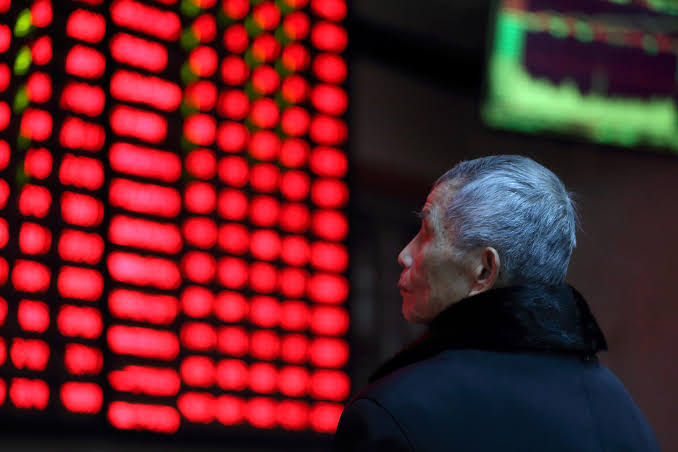
In the 24th straight week of pro-democracy unrest, Hong Kong police shot and wounded a protester as the Chinese-ruled territory saw rare working-hours violence.
The MSCI world equity index, which tracks shares in 47 countries, slipped 0.2%, with Hong Kong's Hang Seng index falling 2.6% and leading losses across Asia.
There, MSCI's widest index of Asia-Pacific shares outside Japan fell 1.2% from six-month highs to set a course for its worst day since late August. Chinese blue chips dropped 1.8%.
The nerves spread to Europe, too.
The broad Euro fell 0.4%, with London shares losing 1.1%. Wall Street futures gauges also suffered, suggesting losses of around 0.4%.
Some investors said markets could be affected by any further escalation of the violence in Hong Kong, where protesters are angry about what they see as police brutality and meddling by Beijing in the freedoms guaranteed to the former British colony.
"At some stage I think it is likely that there will be a more fully-fledged crackdown," said Stéphane Barbier de la Serre, a strategist at Makor Capital Markets. "And if you see a crackdown, you could see markets collapsing."
The violence sent investors running for assets perceived as safe havens and away from riskier currencies.
Gold rose 0.5%, rebounding from a three-month low touched on Friday, to reach $1,465.36 per ounce.
The Japanese yen, which often strengthens in times of global political or economic turmoil, strengthened 0.3% against the dollar. China's yuan, in contrast, weakened 0.3% to 7 per dollar in offshore trade.
Sterling gained 0.3% against the dollar after figures showed that Britain's economy had dodged a recession - but grown at its slowest annual pace in almost 10 years.
It was last trading at $1.28.
The GDP data compounded a warning from Moody's on Friday that it might cut its rating on Britain's sovereign debt again, as it lowered the outlook on Britain's current rating to negative from stable.

1731570357-0/elon-musk-(1)1731570357-0-165x106.webp)
-(1)1717678110-0/Kendrick-(1)-(1)1717678110-0-165x106.webp)














COMMENTS
Comments are moderated and generally will be posted if they are on-topic and not abusive.
For more information, please see our Comments FAQ